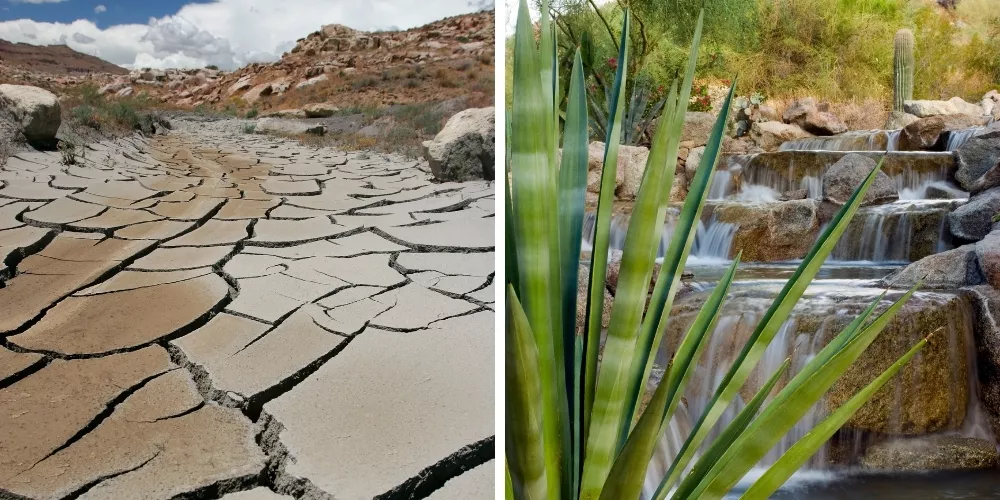
Photos: Canva
THE PROBLEM The western third of the United States has long been classified as arid or semi-arid. Climate change is contributing to a reduction in the volume of available fresh water, particularly from reduced snowpack. Increasingly, the amount of water is declining in rivers, streams, and aquifers. Droughts are becoming more widespread and prolonged. Diminishing water supplies are adversely affecting water quality. Agriculture is the largest consumer of fresh water in most western states and faces challenges in adapting to water shortages. Monetizing water is becoming profitable. Water rights and water resource management are unique to each western state, confounding efforts to craft regional solutions. All of these challenges harden the demand for fresh water which makes communities more vulnerable to fluctuations and disruptions in supply and has led to large-scale remediations such as inter-basin transfers, impoundment, desalination, and re-use.
THE SOLUTION The federal government must take a stronger role to address drought. States must adopt sustainable water resource management plans to build long-term resiliency to water shortages. Because the demand for fresh water exceeds supply, we must advocate for water conservation and efficiency with communities and individuals.
OUR VISION We envision healthy rivers, streams, lakes, wetlands, and aquifers upon which all life depends.
OUR MISSION Our subcommittee is a clearinghouse and resource of information to support western water activists to take action. We educate and advocate for strategies to restore adequate in-stream flows, ensure stable groundwater reserves, guard against the monetization of water, and complement ongoing efforts to protect water quality. We share information among the western states on each state's water resource management plans. We stay actively informed about freshwater conditions and developments at the state and regional levels. We engage water activists through webinars, a book club, our webpage, and a discussion listserv. We also communicate with Sierra Club national staff on relevant federal water issues.
Learn More about Western Waters
- Contribute to our Discussion Listserv. Modify your subscription at the same link.
- To ask a question, please email Elaine Packard.